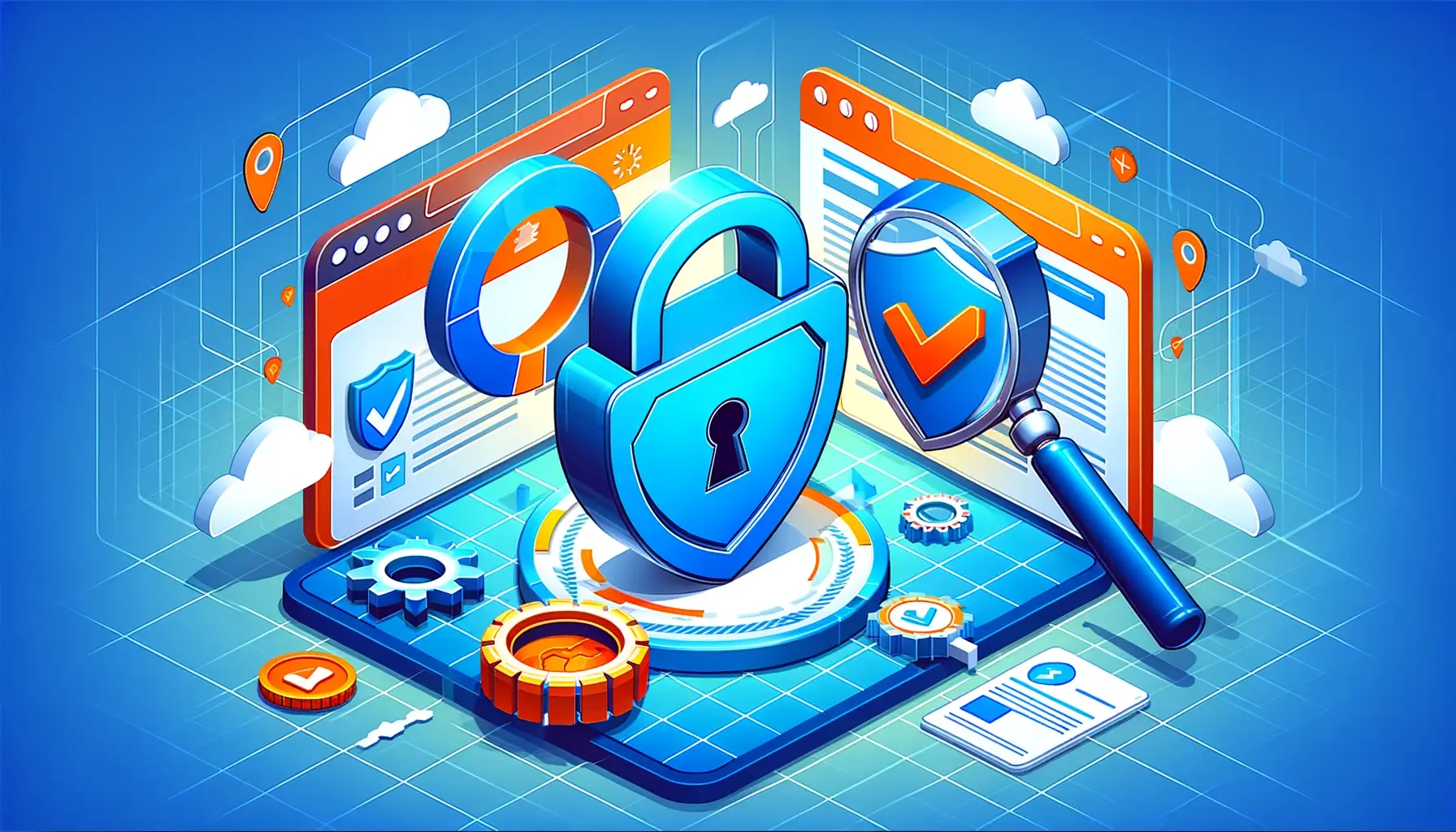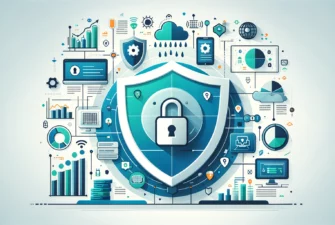
In today’s digital age, online security is more important than ever. With cyberattacks going nowhere, businesses and individuals need to protect sensitive information. The journey to a secure website starts with an SSL certificate, an essential element of web security. But why are SSL certs crucial not only to overall web security but also to the way customers perceive your website? SSL comes with plenty of benefits, and here we reveal the top ones.
Whether you’re a business owner looking to build trust with your customers or an individual concerned about security breaches, understanding the advantages of an SSL certificate will help you choose the right SSL option for your project and adhere to the latest SEO requirements.
In this piece, we’ll discuss twelve different benefits of an SSL certificate, from secure information transfer to better conversion rates and everything in between.
Top 12 Benefits of an SSL Certificate for Your Website
SSL certs come with different validation levels, extra specs, and prices, but they all have one global purpose – encrypted data transfer. It’s the benefit of all benefits, a feature that holds the entire Web together.
1. Sensitive Information Protection
The reason why SSL certificates exist is because of the way we transfer data over the Internet. By default, we use the HTTP protocol to communicate with others. However, all the data shared via HTTP is in plain text and susceptible to cyber attacks.
An SSL certificate uses the TLS cryptographic protocol to encrypt information such as names, addresses, and credit card details in transit between a web browser and a server. So even if hackers intercept it, they can’t decipher the random string of characters they see. As a result, the very fabric of online commerce and transactions relies on SSL certificates.
2. Website and Company Authentication
SSL certificates are issued by trusted third-party Certificate Authorities. These entities verify and validate the SSL applicant’s identity according to the requested validation level. Browsers use the certificate’s details to establish a secure connection with the website’s server.
At the same time, users can be confident that they are interacting with the correct website and not a fraudulent one. And, with Business and Extended SSL Validation available, visitors will know that the website is legit.
3. Increased Customer Trust
Combine the two previous benefits, and you get enhanced customer trust and a loyal user base with peace of mind that their sensitive data is safe. By providing advanced encryption and proving your business identity, you ensure a secure environment for your visitors. Customers can inspect the certificate details and see that behind the website is a genuine company operating in good faith and vetted by a reliable Certificate Authority.
4. Provide Online Visibility
Today, SSL certificates are a mandatory element for any website, regardless of size, niche, and type. If you don’t use a trusted certificate, browsers will flag your site as “Not Secure.” This little warning will have lasting consequences on your business or online project, as visitors will encounter an off-putting security message instead of your content when accessing a page.
SSL protects users’ sensitive details, so it only makes sense for browsers to prevent them from entering a site vulnerable to cyber threats such as man-in-the-middle attacks. To remain visible online, getting an SSL certificate is a must.
5. Better Search Engine Rankings
SSL benefits don’t stop at just the security and identification side. Another pro is that SSL certificates, if properly configured, improve SEO results. When Google decided to encrypt the whole Web, one of their first actions was an SEO boost to encourage the HTTPS migration. Today, when over 90% of the internet is secure, browsers penalize HTTP websites and display a security warning when users access them. SSL certificates are an indispensable part of SEO, just like they are a critical security element.
6. Phishing Attacks Prevention
Phishing websites are a common occurrence. Although the average user’s cybersecurity awareness has improved over the years, too many people still fall victim to smart cyberattacks in which attackers trick users into divulging sensitive information such as login credentials or financial data by impersonating a trusted website.
And while a free or paid DV certificate won’t protect your business against relentless phishers, Extended Validation certificates, thanks to the rigorous verification process, are a sure sign that the website is legitimate. Additionally, EV SSL certificates display the organization’s name in the certificate’s info panel, helping users identify genuine sites and avoid phishing scams.
7. Improved Conversion Rates
SSL certificates can improve conversion rates by enhancing website security and building trust. A user is more likely to buy from a secure and reliable website. And, while the SSL padlock alone isn’t a sure trust indicator, the certificate’s info with the issuer and the official company name could be the deciding factor for some customers when purchasing from an e-commerce platform. This increased website security can help visitors feel more confident in providing their personal information to the website.
8. Regulatory Compliance
An SSL certificate helps to meet regulatory compliance, particularly in industries that handle sensitive data and online transactions, such as healthcare, finance, and e-commerce. Compliance regulations such as HIPAA (Health Insurance Portability and Accountability Act), PCI-DSS (Payment Card Industry Data Security Standard), and GDPR (General Data Protection Regulation) require organizations to implement strong security measures to protect the confidentiality and integrity of their customer’s data.
For example, PCI-DSS requires merchants to use SSL certificates to encrypt all sensitive data transmitted between their websites and customers. Failure to comply with PCI-DSS can result in significant fines and reputational damages.
9. Faster Loading Speed and Performance
SSL certificates were once thought to slow down websites due to the encryption and decryption process. However, thanks to the latest TLS protocol and advancements, SSL certificates optimize website speed and performance. Used in conjunction with the HTTP/2 protocol, which improves speed by allowing simultaneous multiple requests and responses, SSL certs help sites load faster. Furthermore, TLS 1.3 streamlines the SSL handshake by reducing the number of round-trips required, which decreases latency and speeds up the connection process.
10. Compatible With Most Browsers and Systems
The benefits of SSL certs expand to full-scale browser compatibility. Over 99% of browsers, including legacy versions, support the TLS protocol. Moreover, you can install an SSL certificate on almost any server, email client, network, and VPN appliance. Here are a few SSL-compatible systems: All Microsoft Services, Apache and Nginx web servers, Zimbra and Mozilla ThunderBird email clients, and many more. On top of that, SSL certs work flawlessly on mobile devices and protect apps from data theft.
11. Affordable and Accessible
SSL certificates are accessible and affordable thanks to healthy competition between the leading CAs, and an excellent distribution model where SSL resellers buy certs cheaply and then pass the savings to the final customers. Today, any company or individual can get an SSL certificate suitable to their needs and budget in just a few minutes. Gone are the days of expensive SSL certs and lengthy buying processes. And, if you don’t know what certificate to choose, tools like our SSL Wizard will recommend you the best option for your project.
12. Flexible Security for Complex Needs
An SSL certificate can secure one domain, unlimited subdomains, or multiple domains under one installation. But there’s more! SSL certs can also protect a public IP address. So, whether you have a blog, a network of sites, or an IP address that needs encryption, SSL certificates are versatile enough to meet the most complex needs. Furthermore, you can also encrypt your email communication with S/MIME certificates and digitally sign documents to prove the sender’s identity and ensure data integrity.
Conclusion
In this article, we’ve covered the benefits of an SSL certificate and how they help both website owners and visitors carry out their activities online without being susceptible to security threats. But the SSL certificate advantages go beyond data encryption and identity verification, as they improve customer trust and help companies meet regulatory compliance and standards. A requirement now for all websites, SSL certs safeguard data exchanges over the Web and allow users to carry on with their routines without worrying about security threats.
Save 10% on SSL Certificates when ordering today!
Fast issuance, strong encryption, 99.99% browser trust, dedicated support, and 25-day money-back guarantee. Coupon code: SAVE10



























